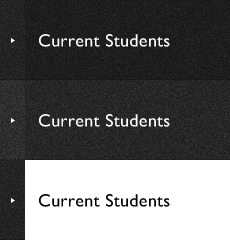Research ethics education
Science Tokyo launched a systematic framework for research ethics education in AY 2019. At each School, students will gain necessary knowledge and skills associated with their field of expertise. As they move progressively through three levels toward a deeper understanding of research ethics, they are expected to review outcomes using a checklist.
Levels and target students
- Level 1: 1st- to 3rd-year bachelor's students who have yet to start their Independent Research Project
- Level 2: 4th-year bachelor's students who have started their Independent Research Project, and master's students
- Level 3: Doctoral students
Note: Regardless of the above, students planning early graduation must complete level 1 before starting their Independent Research Project, then proceed to level 2 after starting the Project.
Research ethics education and level checklists
For details on the contents of research ethics education and checklists for each faculty, department, and course, please contact the head of the department, course director, or the administrative office in charge of the department or course.
Research ethics resources
1. Online Lectures: Science, Engineering and AI Data Ethics
Availability period: Thursday, May 1, 2025 - Saturday, February 28, 2026 / Registration deadline: Saturday, January 31, 2026
Science, Engineering, AI and Data Ethics
2. Japan Society for the Promotion of Science (JSPS)
For the Sound Development of Science (handbook for research integrity)
3. Association for the Promotion of Research Integrity (APRIN)
APRIN e-learning program (eAPRIN)
List of eAPRIN courses and contents
List of eAPRIN courses and contents (Japanese)
4. Japan Science and Technology Agency (JST)
The Lab (visual education material distributed by JST)
Notes:
- *1
-
Online Lectures, el_CoRE, and The Lab courses are available free of charge. As there are two types of access, single-user and multi-user, students planning to take courses are advised to ask department chairs, academic supervisors, or relevant administrative office staff which option is suitable.
- *2
-
Science Tokyo has a multi-user account for eAPRIN. User IDs and other required information will be provided to students by student division.


